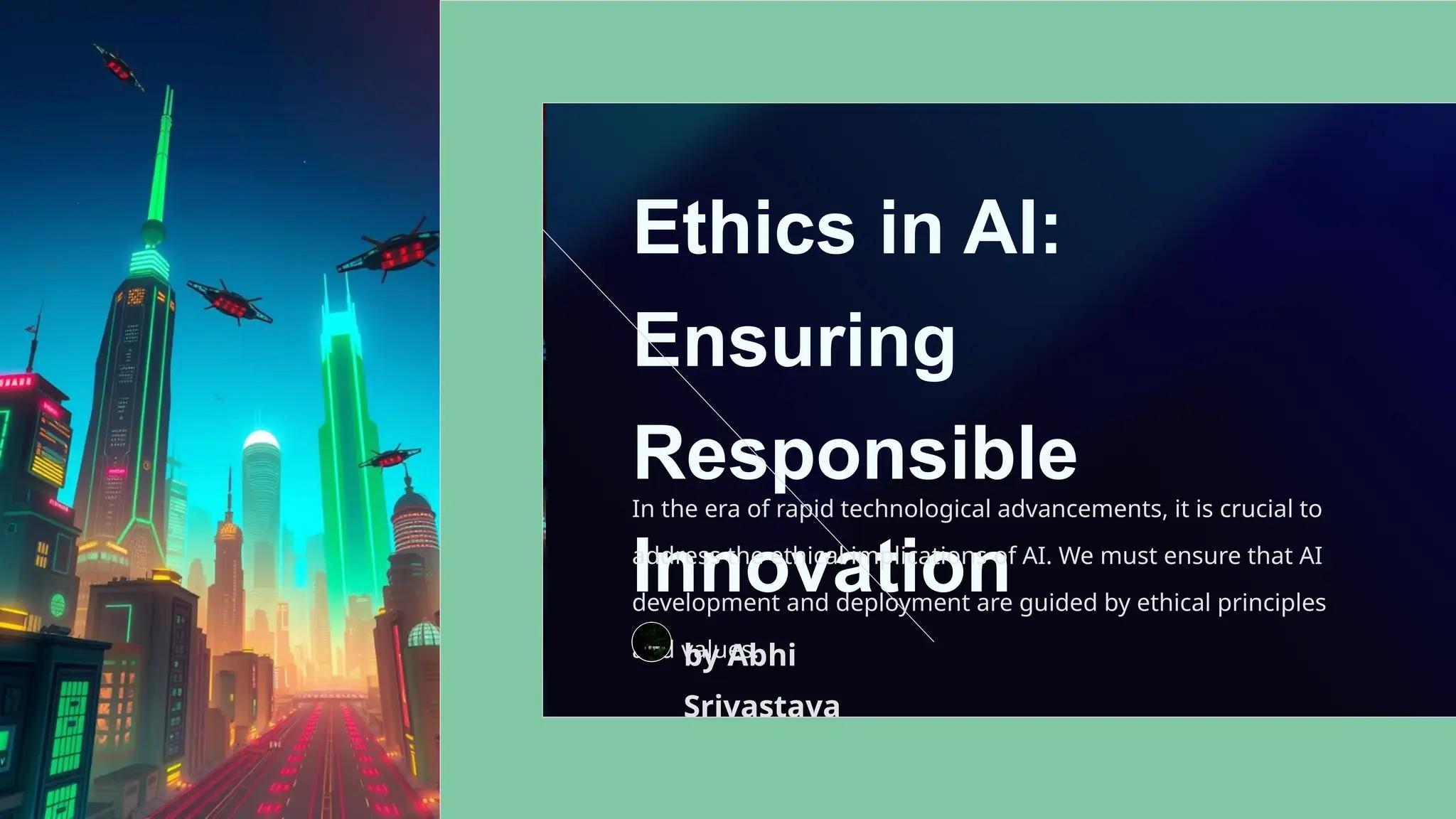Ethical Considerations in AI-Driven Learning: Ensuring Responsible Educational Innovation
Artificial Intelligence (AI) is transforming the landscape of education, offering personalized learning experiences, automating administrative tasks, and predicting student needs. But as AI-driven learning becomes more prevalent, it brings with it a host of ethical considerations that educators, developers, and policymakers must address. In this article, we’ll delve into the critical ethical issues in AI in education, explore their impact, and share practical tips to ensure responsible educational innovation.
Understanding AI-Driven Learning in Education
AI-driven learning refers to the use of artificial intelligence algorithms and systems to enhance and personalize the educational process. From adaptive learning platforms that tailor content to individual students, to automated grading tools and AI-powered chatbots, the applications of AI in education are rapidly expanding.
- Personalized learning paths based on student performance and preferences.
- Early intervention for students at risk of falling behind.
- Automated feedback and assessment to support teachers.
- Resource optimization for educational institutions.
The Importance of Ethical AI in Education
While the potential benefits are immense, the integration of AI in learning environments also raises important ethical questions.These include concerns about data privacy, algorithmic bias, transparency, student agency, and equitable access.
Addressing these ethical issues is crucial not just for safeguarding student interests, but also for maintaining public trust and ensuring that technological advancements lead to responsible educational innovation.
Key Ethical Considerations in AI-Driven Learning
1. Student Data Privacy and Security
AI systems in education rely on vast amounts of student data, raising the stakes for data privacy and security. Schools and EdTech companies must:
- Obtain informed consent from students and guardians before data collection.
- Ensure compliance with regional privacy laws such as GDPR or FERPA.
- Store and manage data securely to prevent breaches.
- Communicate clearly about how data will be used and for what purposes.
2. Algorithmic Bias and Fairness
AI algorithms can unintentionally favor certain groups over others if trained on biased data sets. This can perpetuate or even worsen educational inequalities.To ensure fairness in AI-driven learning:
- Regularly audit algorithms for bias and discrimination.
- Integrate diverse, representative data sets during model training.
- Engage third-party experts to evaluate systems for unintended bias.
3. Transparency and Explainability
Many AI-powered educational tools operate as “black boxes,” making it difficult for educators and students to understand how decisions are made. Ethical AI in education demands:
- Clear documentation on how AI models work and make decisions.
- accessible explanations for students and teachers when AI is involved in assessments or recommendations.
- Right to contest or review AI-generated outcomes.
4. Student Autonomy and Human Oversight
While personalized learning can enhance engagement, over-dependence on AI can undermine student autonomy and critical thinking.
- Maintain a human-in-the-loop approach for major decisions, especially assessments and placements.
- Encourage students to question,challenge,and seek clarification on AI outputs.
- Complement AI insights with teacher expertise and judgment.
5.Equitable Access to AI-Driven Learning
Technology gaps across schools and communities can exacerbate the digital divide.Ensuring equity in AI-driven learning requires:
- Affordability and accessibility of AI-powered tools across socioeconomic backgrounds.
- Provision of resources and training for both teachers and students.
- Policy advocacy to support inclusion and broadband infrastructure.
Benefits of Ethical AI in Education
When guided by robust ethical frameworks, AI in education can be transformative. here’s how:
- Personalized learning adapts to individual student needs, improving engagement and outcomes.
- Predictive analytics help identify at-risk students, enabling targeted support.
- Administrative efficiency allows educators more time for meaningful teaching.
- Scalable support extends quality education to underserved regions.
Case Study: Addressing Algorithmic Bias in AI-Powered Assessments
In 2020, a large European education provider implemented an AI-based grading system to streamline university admissions. However, the system drew criticism for unfairly disadvantaging students from underrepresented backgrounds. After a public outcry and careful review, the organization:
- Paused AI-based grading until further audits and adjustments were made.
- Invited transparency and involvement from external educational and ethics experts.
- Developed clear guidelines for fair AI use in academic assessments.
This case underscores the necessity of continuous monitoring, stakeholder engagement, and revisiting algorithms to ensure ethical and responsible educational innovation.
Practical Tips for Ensuring Responsible Innovation
- Engage Stakeholders: Involve students, educators, parents, and community representatives in the design and deployment of AI tools.
- Adopt Transparent Practices: Make details about AI tools and their operation openly available to all users.
- Prioritize Privacy: Follow industry best practices for data security and inform users about their rights and data usage.
- Commit to Continuous Betterment: Regularly update and refine AI systems based on feedback, audits, and new research.
- Foster Digital Literacy: Equip students and teachers with the skills to understand and critically assess AI-powered tools.
- Implement Human Oversight: Ensure trained educators review and contextualize AI decisions, especially in high-stakes situations.
Conclusion
AI-driven learning represents unbelievable promise for the future of education, enabling personalized learning, greater efficiency, and broader access. Yet, these advancements must not come at the cost of ethics, equity, and student well-being.By prioritizing ethical considerations in AI-driven learning,and adopting a steadfast commitment to transparency,fairness,and human-centric design,schools,developers,and policymakers can pave the way for responsible educational innovation that benefits all learners.
As we navigate this rapidly evolving landscape, continuous engagement, diligent oversight, and a focus on ethical best practices will be essential in shaping a digital future that empowers every learner to thrive.

